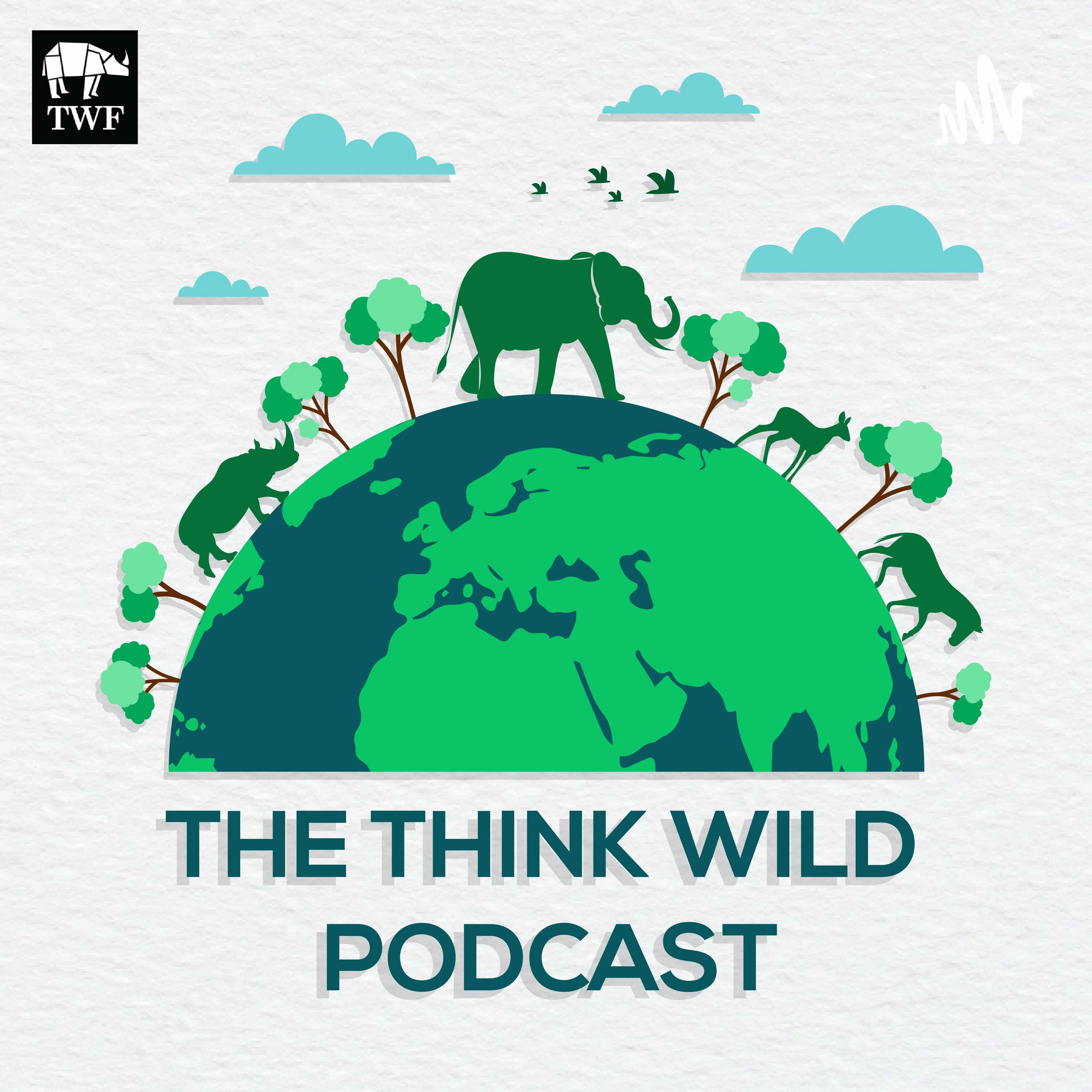The Think Wildlife Podcast
Every Monday, join our hosts, Anish Banerjee, as he speaks with renowned conservationists from around the world, dissecting some of the most pressing and intricate challenges threatening wildlife. anishbanerjee.substack.com
S3|EP35 - Conserving India's Marine Biodiversity through Sustainable Fisheries with Divya Karnad
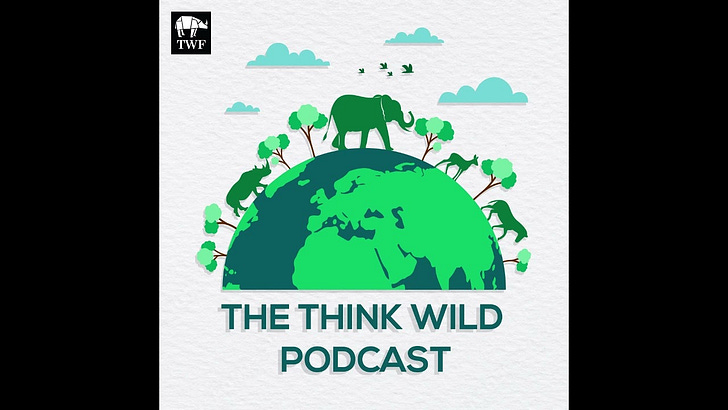
In this insightful episode of the Think Wildlife Podcast, we are joined by Divya Karnad, one of India's leading marine conservationists and the co-founder of InSeason Fish, a pioneering initiative promoting sustainable fisheries and responsible seafood consumption across India’s coastal communities.
From India’s vibrant marine ecosystems to its threatened fisheries, this conversation dives deep into the ecological, social, and economic dimensions of marine biodiversity loss and ocean conservation. Divya Karnad draws from her extensive research and fieldwork with fishing communities to shed light on the nuanced challenges of natural resource management, the impact of bottom traw...
S3|EP 34 - Conserving Bonnet Macaques with One Health | Praneetha Monipi | Adhvaya Foundation

In this episode of the Think Wildlife Podcast, we are joined by Praneetha Monipi, founder of the Adhvaya Foundation, a grassroots organization pioneering integrated approaches to wildlife conservation and community welfare. We dive deep into the world of macaque ecology, primate conservation, and the growing challenges of human-primate interactions in India.
Focusing on the bonnet macaque, one of India's most widespread primates, Praneetha shares insights into the complex dynamics of human-macaque conflict—from temple provisioning and habitat degradation to unscientific relocations and emerging health risks. Through the lens of One Health, she illustrates how macaque conservation is in...
S3|EP23 - Saving the Humpback Mahseer: with the Wildlife Association of South India

Join us in this powerful episode as we dive into the heart of river biodiversity and conservation in South India with Sandeep Menon of the Wildlife Association of South India (WASI). Discover the story of the critically endangered humpback mahseer (Tor remadevii), a keystone and iconic fish species endemic to the Cauvery River and protected within the Cauvery Wildlife Sanctuary. This episode highlights the urgent need for fish conservation, biodiversity management, and sustainable engagement with river ecology in the face of rising threats to freshwater ecosystems.
Founded in 1972—the same year India enacted its Wildlife Protection Act—WASI...
S3|EP32 - Restoring Nature Through Megafauna Rewilding and the International Wildlife Coexistence Network with Suzanne Asha Stone

In this episode of the Think Wildlife Podcast, we are joined by Suzanne Asha Stone, founder of the International Wildlife Coexistence Network, to explore the urgent and inspiring work being done to foster human-wildlife coexistence in an age of escalating human-wildlife conflict.
As global ecosystems teeter on the edge due to climate change, habitat loss, and biodiversity collapse, Suzanne sheds light on how coexistence-based approaches are revolutionizing biodiversity conservation and transforming our relationship with nature. From protecting wolves in the Rocky Mountains to reviving lion populations in East Africa, the network works globally to promote non-lethal solutions...
S3|EP31 - How Animal Cognition and Personality Shape Wildlife Conservation | Dr. Deyatime Ghosh | ATREE

How does animal behavior shape conservation outcomes? In this thought-provoking episode of the Think Wildlife Podcast, host Anish Banerjee speaks with Dr. Deyatima Ghosh, a postdoctoral researcher at ATREE, to explore the vital links between animal personality, cognition, and biodiversity conservation. With a particular focus on reptiles and amphibians in India’s agricultural landscapes, the conversation dives deep into how understanding animal behavior can inform ecological sustainability and conservation strategies.
Dr. Ghosh introduces the concept of animal personality—consistent and predictable behavioral differences within individuals—and explains how traits such as boldness, aggression, and exploratory behavi...
S3|EP30 - Protecting Biodiversity Through Community Conservation with Dr. Teri Allendorf
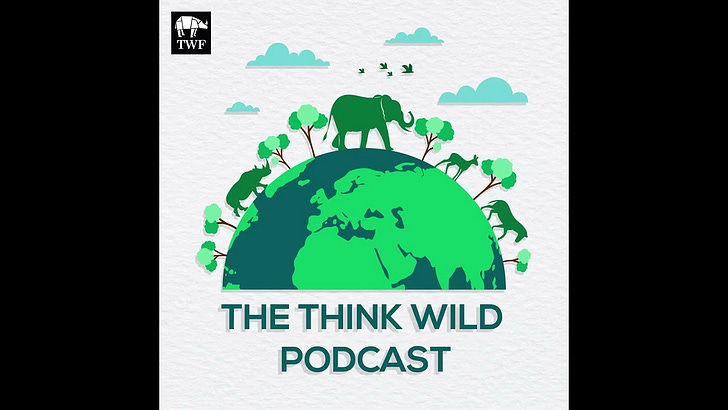
In this episode, we speak with Dr. Teri Allendorf, Executive Director of Community Conservation, to explore the transformative impact of community-led conservation. Dr. Allendorf brings over three decades of experience working at the intersection of biodiversity and local communities, with groundbreaking work in Nepal, India, Myanmar, Cameroon, China, and Belize. This conversation delves deep into how grassroots environmental initiatives and community-driven conservation projects are reshaping the future of wildlife protection and biodiversity conservation across the globe.
Dr. Allendorf shares inspiring conservation success stories, including the remarkable revival of golden langur habitats in Assam’s Kakarvijana Reserve Forest, ti...
S3|EP27 - Conserving the Hidden Gems of Eastern Ghat with the Eastern Ghats Wildlife Society

Join us on this special episode of the Think Wildlife Podcast as we journey deep into one of India’s most overlooked ecological marvels — the Eastern Ghats. Known as a biodiversity hotspot, the Eastern Ghats are a treasure trove of hidden gems waiting to be discovered. From rare mammals and elusive reptiles to ancient forests and unique conservation challenges, this episode is your gateway to understanding the conservation of the rich Eastern Ghat biodiversity through the eyes of local conservationist Murthy Kantimahanti, founder of the Eastern Ghats Wildlife Society.
What makes the Eastern Ghats Biodiversity so unique? Stre...
S3|EP26 - Conserving India’s Forgotten Eastern Coastline with Sri Chakra Pranav

In this inspiring episode of the Think Wildlife Podcast, we’re joined by Sri Chakra Pranav Tamarapalli, marine biologist and founder of the East Coast Conservation Team (ECCT), to dive deep into the untold story of conservation along India’s East Coast—a region often overlooked in biodiversity efforts. From protecting smooth-coated otters in freshwater wetlands to documenting rare intertidal biodiversity, this episode explores the challenges and triumphs of grassroots conservation in Andhra Pradesh.
Conservation Beyond the MainstreamWhile India’s Western Ghats and Northeast are recognized as biodiversity hotspots, Pranav shines a light on the unsung ecosystems of Andhr...
S3|EP26 - Conservation at a Crossroads: Landscape Ecology, Roadkill & Wildlife Corridors in India with Landscape Research and Conservation Foundation
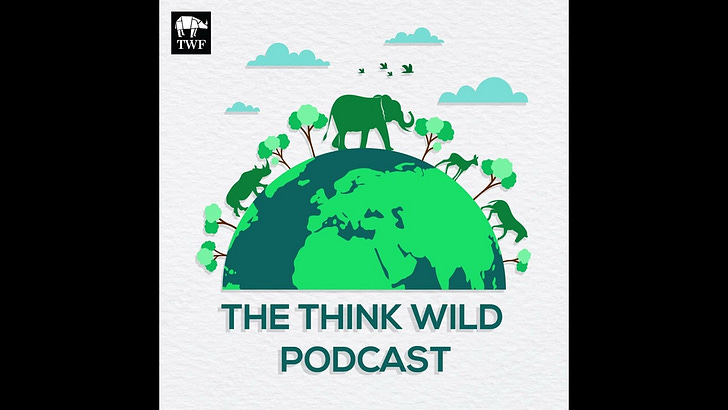
India’s biodiversity hotspots are under growing threat from linear infrastructure—highways, railways, canals, and transmission lines that fragment habitats and disrupt wildlife corridors. In this thought-provoking episode of the Think Wildlife Podcast, we dive into the world of landscape ecology and wildlife conservation with two leading conservationists, Sheetal Kolhe and Milind Pariwakam, co-founders of the Landscape Research and Conservation Foundation (LRCF).
With extensive experience at institutions like the Wildlife Trust of India and Wildlife Conservation Trust, Sheetal and Milind share powerful insights into the hidden cost of development on India’s wildlife. From tiger movement barriers to roa...
S3|EP25 - Reviving Grasslands: Biodiversity, Community Resilience & Grassroots Conservation in India with Aditi Patil and Manya Singh | Conservation Indica
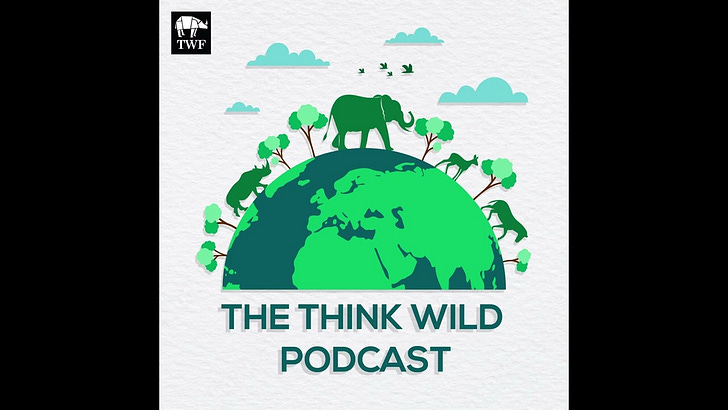
In this in-depth episode of our conservation podcast, we’re joined by Aditi Patil and Manya Singh—co-founders of Conservation Indica, a grassroots organization reshaping how we approach biodiversity conservation and protecting grasslands in India. This conversation dives into the realities of working with grassland ecosystems, the urgent need to rethink conservation science, and the challenges and triumphs of working with communities in overlooked landscapes like the Surendranagar grasslands in Gujarat.
Grasslands are often mislabeled as "wastelands" in India, yet they are teeming with biodiversity. From grassland plants and animals to the complex cultural and ecological dynamics that...
S3|EP25 - Rethinking Conservation: Forest Rights & Community- Based Conservation | Meenal Tatpati
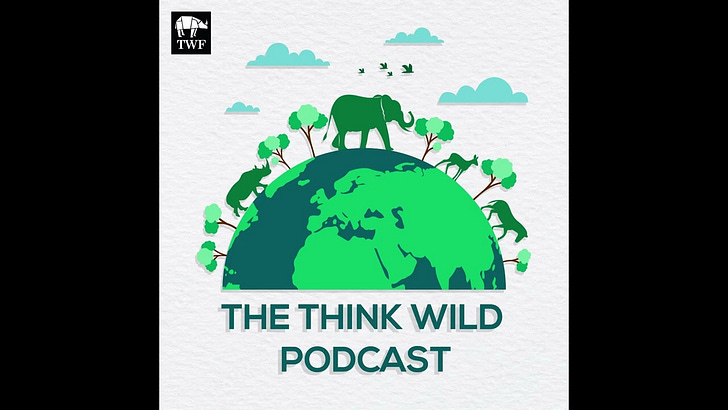
In this powerful episode of the Think Wildlife Podcast, we are joined by Meenal Tatpati, a leading researcher and advocate for forest rights, indigenous knowledge, and democratic conservation. Together, we explore the transformative impact of the Forest Rights Act 2006 (FRA 2006) and challenge the outdated logic of fortress conservation.
Meenal explains how the forest rights act of 2006 recognizes the historical injustice faced by forest dwellers, including Adivasi communities, by legally securing their access to forests and resources. We also dive into how the Supreme Court and recent amendments to the Forest Conservation Act are reshaping debates around indigenous...
S3|EP24 - Restoring Forests, Rebuilding Futures: Sadhana Forest’s Global Mission | Aviram Rozin
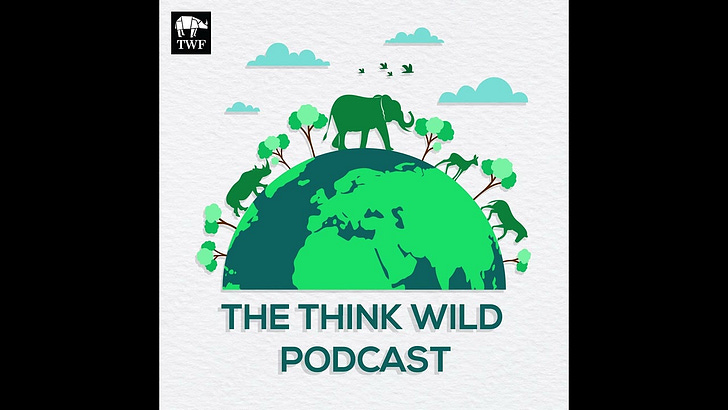
In this inspiring episode of the Think Wildlife Podcast, we welcome Aviram Rozin, founder of Sadhana Forest, a globally respected movement dedicated to reforestation, sustainable development, and nature-based solutions. What started in 2003 as a family’s dream to revive degraded land in Tamil Nadu has evolved into an international model for ecological restoration and community-led change.
With over 70 acres of tropical dry evergreen forest restored in India, and active reforestation projects in Haiti, Kenya, Namibia, and Meghalaya, Sadhana Forest shows that large-scale transformation is possible—through people-powered action, smart land management, and a deep respect for nature.
S3|EP23– How Bioacoustics is Powering Biodiversity Monitoring & Forest Restoration| Dr. Vijay Ramesh | Project Dhvani
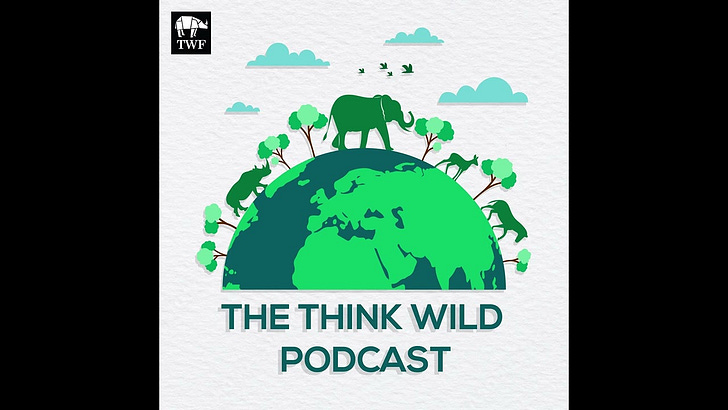
In this fascinating episode of the Think Wildlife Podcast, we dive into the groundbreaking work of Project Dhvani, a pioneering conservation initiative using bioacoustics to revolutionize how we understand and manage biodiversity in India’s tropical landscapes. Host Anish sits down with Dr. Vijay Ramesh, co-founder of Project Dhvani, to discuss how animal vocalization and animal sounds captured through passive remote sensing can reveal vital insights into the state of ecosystems, land-use changes, and the success of forest restoration projects.
Project Dhvani began as a research collaboration between Dr. Ramesh, Dr. Pooja Choksi, and Dr. Sa...
S3|EP22 - Wild Narratives: The Journey of Trishala Ashok in Conservation Filmmaking
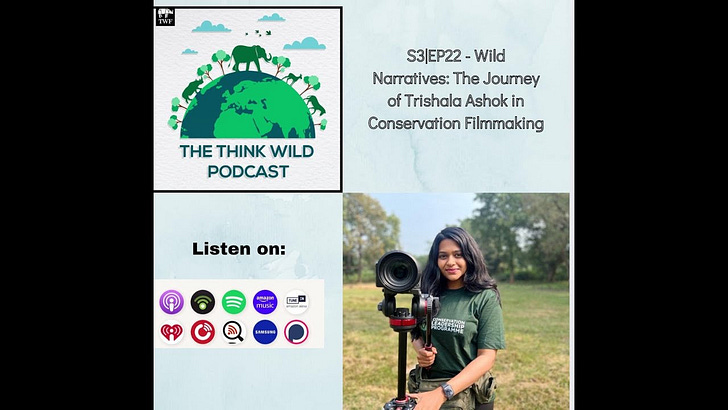
In this deeply enriching episode of the Think Wildlife Podcast, we delve into the transformative journey of Trishala Ashok—an award-winning jewelry designer turned conservation filmmaker and founder of True Story Media Productions LLP. Through an inspiring and heartfelt conversation, Trishala takes us on a voyage that beautifully bridges creativity and science, forging a path that is not just about capturing wildlife through the lens, but about safeguarding it through purpose-driven narratives. From the forests of Karnataka to the banks of the Girwa River and the unseen corridors of airport security, Trishala’s commitment to ecological filmmaking has established her...
S3|EP21 - Tackling Human-Wildlife Conflict and Illegal Wildlife Trade in Africa | Maurice Schutgens | Space for Giants
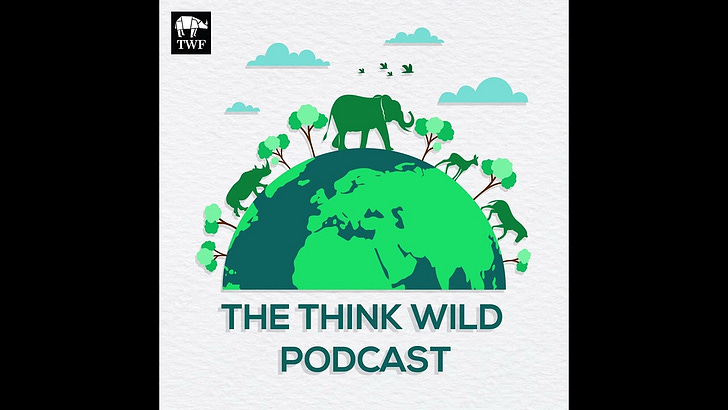
Welcome to this insightful episode of Think Wildlife Podcast, where we delve deep into the pressing issues of human-wildlife conflict, illegal wildlife trade, and conservation efforts in Africa. In this episode, we speak with Maurice Schutgens, Managing Director of Conservation at Space for Giants, an organization dedicated to preserving Africa’s iconic megafauna and landscapes.
We explore the complex dynamics of human-elephant conflict, the innovative strategies used to mitigate these conflicts, and how nature-based economies are reshaping conservation in Africa. Additionally, we discuss the illegal wildlife trade and the policies and enforcement mechanisms helping to curb it.
...S3|EP20 - Carbon Credits & Conservation: How Wildlife Works is Saving Forests and Communities | Mike Korchinsky
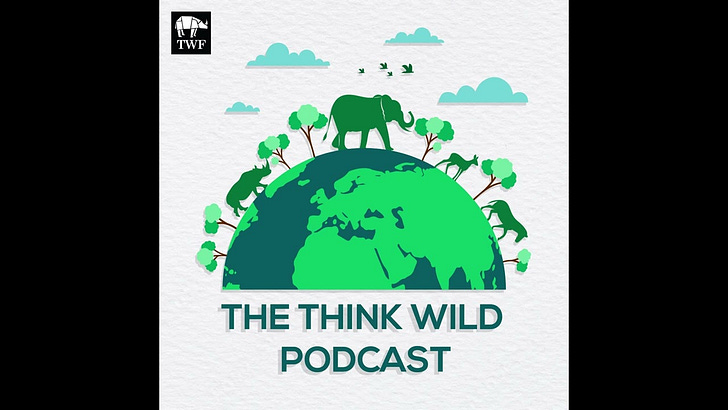
In this episode of The Think Wildlife Podcast, we dive into the dynamic intersection of conservation, climate finance, and community-driven solutions with Mike Korchinsky, the founder and president of Wildlife Works. Our conversation explores how market-based mechanisms such as carbon credits and REDD+ (Reducing Emissions from Deforestation and Forest Degradation) are revolutionizing the way we approach wildlife conservation, forest protection, and sustainable development.
Understanding the Role of Carbon Credits in Conservation
Over the last few years, there has been a growing global interest in financing climate solutions through mechanisms like biodiversity credits and carbon credits...
S3|EP19 - How Earthly is Revolutionizing Nature-Based Climate Solutions with Oliver Bolton
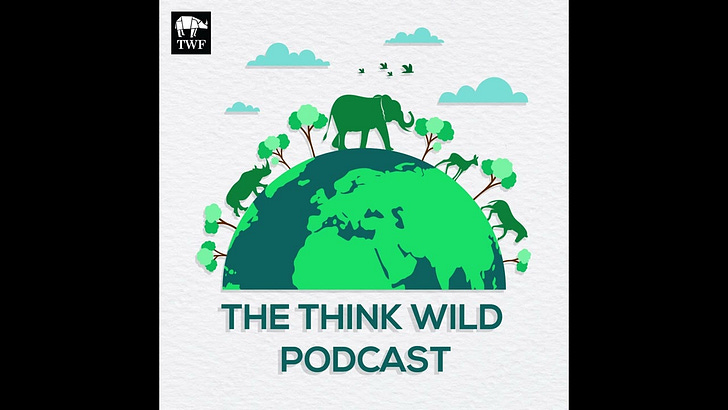
In this insightful and action-driven episode, we welcome Oliver Bolton, CEO and co-founder of Earthly, a pioneering startup dedicated to protecting and regenerating more than 1% of the planet by 2030. Earthly provides businesses with a trustworthy, high-impact way to invest in nature-based climate solutions that drive carbon reduction, biodiversity restoration, and social impact.
Throughout the episode, Oliver explains how Earthly operates and the innovative methods they use to screen and verify nature-based projects. He discusses the company’s rigorous 106-data-point assessment system, which ensures businesses can de-risk their investments by selecting the highest integrity projects. He also delves in...
S3|EP18 - How to build a career in conservation? | Dr. Nick Askew, Director, Conservation Careers
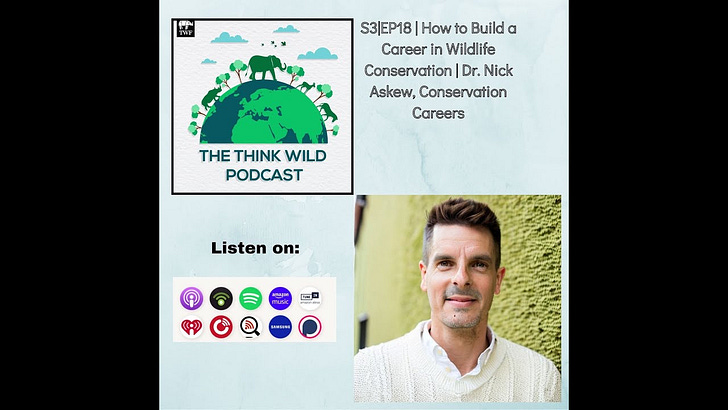
Join host Anish in this insightful episode of The Think Wildlife Podcast as he sits down with Dr. Nick Askew, the founder of Conservation Careers. Discover how Dr. Askew’s passion for wildlife, from his early days as a teenage angler to his impactful global conservation career has led to helping over 700,000 conservationists worldwide.
In this episode, we discuss the most in-demand conservation job skills. Dr. Askew also elaborates upon the key challenges facing aspiring conservationists, from securing experience to tackling inequality, diversity, and inclusion within the sector. We also discuss how careers in conservation go beyond tr...
S3|EP17 - Saving Our Oceans: The Blue Economy, Coral Reefs & Sustainable Fisheries | Dr. David Obura
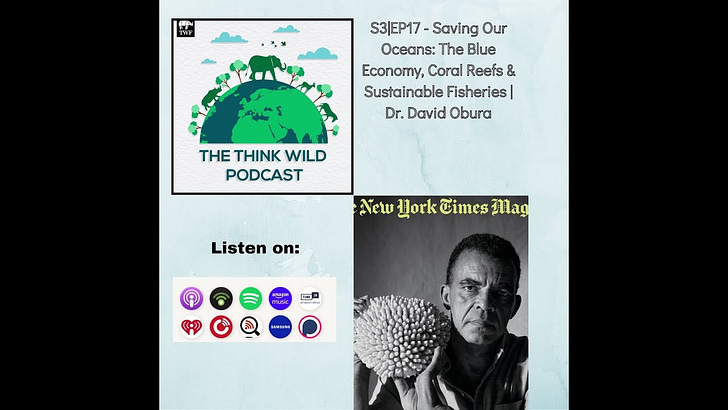
Join us for an insightful deep dive into the world of marine conservation, coral reef resilience, and the blue economy with Dr. David Obura, one of the world’s leading marine ecologists and the founding director of CORDIO East Africa. CORDIO is a pioneering organization working to protect coral reefs and sustain marine ecosystems in the Western Indian Ocean.
Dr. David Obura received a PhD from the University of Miami in 1995, focusing on coral bleaching and life history strategies. Throughout his career, he has worked extensively on participatory monitoring and research tools with artisanal fishers in East Af...
S3|EP16 - Conserving Africa's cheetahs with Dr. Laurie Marker, Executive Director of Cheetah Conservation Fund
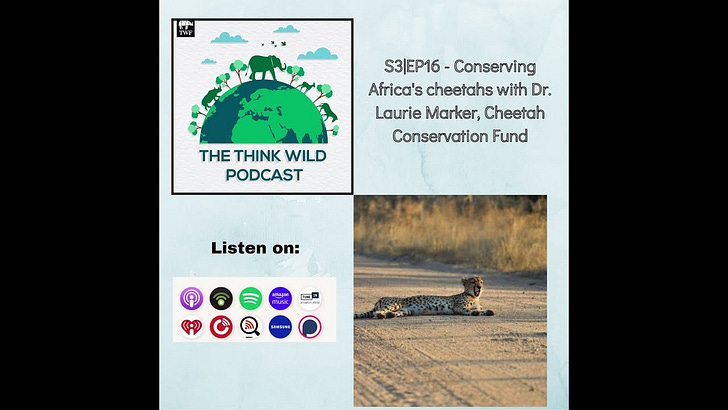
In this Episode of The Think Wildlife Podcast, I am joined by Dr. Laurie Marker, the founder and Executive Director of the Cheetah Conservation Fund (CCF). Founded in Namibia in 1990, CCF has become the leading authority in cheetah conservation globally, with projects across Somaliland, Namibia, Tanzania, Kenya, South Africa and Botswana. Beyond Africa, CCF also has supported the conservation of the last remaining Asiatic cheetahs in Iran. Meanwhile, the CCF has assisted the Indian government and the Wildlife Trust of India with the reintroduction of cheetahs into Kuno National Park.
Listed as “Vulnerable” by the IUCN Red List...
S3|E15 - Exploring the Gharial Conservation Programme Katerniaghat with Dr. Gaurav Vashistha
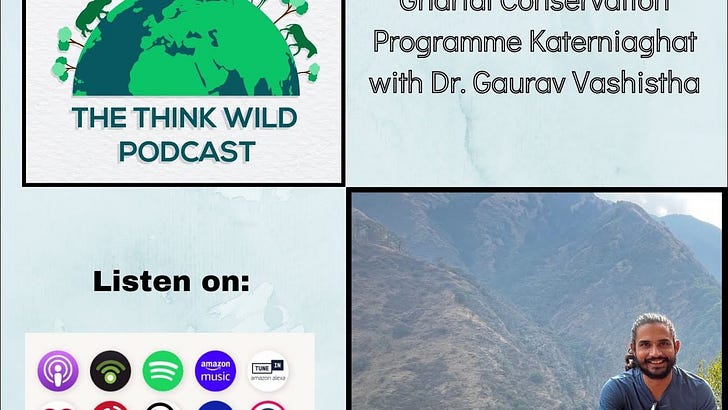
The gharial, a Critically Endangered species, is an unmistakable crocodilian on the edge of extinction. Recognizable by its long, slender jaws adapted for catching fish, males have a distinctive bulbous growth on their snouts called a "ghara," which is named after a traditional Indian pot. This unique feature is also the basis for the species' common name, "gharial." Unlike other crocodiles, gharials exhibit a marked difference between males and females.
Once widespread throughout the Indian subcontinent, the gharial now survives in only five small, isolated populations across India and Nepal. The IUCN Red List classifies the gharial...
S3|EP14 - Understanding Conservation Filmmaking with Rita Banerji
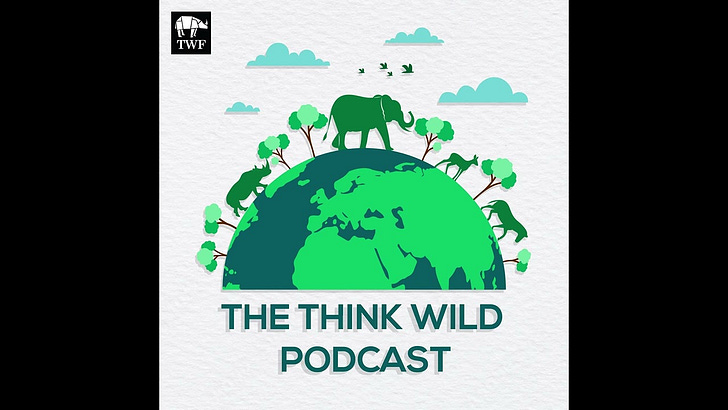
In Episode 14, I am joined by one of India’s leading conservation filmmakers, Rita Banerji. She is the founder of Dusty Foot Productions and the Dusty Foot Foundation, through which Green Hub established in 2014. As An Ashoka Fellow, Rita is the winner of multiple Green Oscars for her films on wildlife and environment. Rita was inducted as an Ashoka Fellow for the Green Hub project in 2019. Through this project, she is supporting countless upcoming wildlife filmmakers and conservationists from North East India. I’m sure you will enjoy hearing about Rita’s amazing work.
The Think Wildlife Podcast i...
S3|EP13 - Protecting Maharashtra's Indigenous Communities from the Climate Crisis with Dr. Sarika Kulkarni
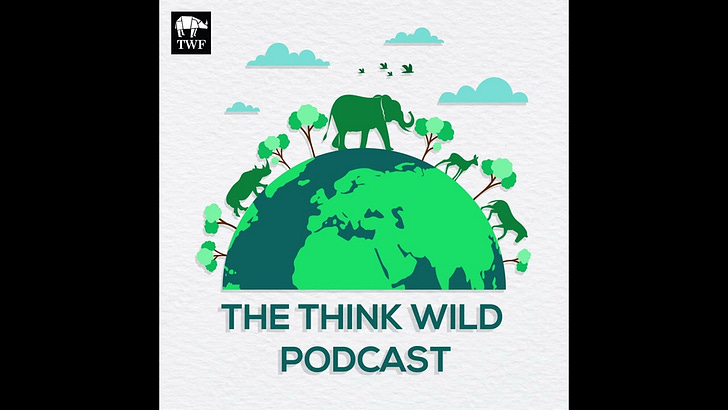
Many of the world’s poorest communities are among tribal and indigenous populations. Trapped in a relentless cycle of extreme poverty, vulnerability, and deprivation, they face a complex web of challenges that are deeply interconnected. These communities are the most vulnerable to the onset of climate change and environmental degradation. Increased water scarcity, soil instability and deforestation threaten the livelihoods of the 300 million people who are reliant on India’s forest ecosystems.
In Episode 13, I am joined by Dr. Sarika Kulkarni, the founder of the RAAH Foundation, an organization with the vision to make a better life for...
S3|E12 - Tackling the Illegal Wildlife Trade with Jose Louies
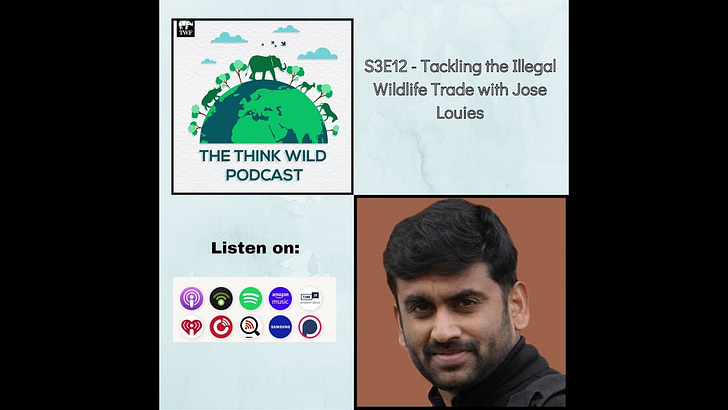
Earlier this year, Amazon Prime released the thrilling crime drama “Poacher” which revolved around the elephant poaching crisis and ivory trade in 2015. Based in Kerala, the series explores how the Forest Department, with support from NGOs and conservationists, risked their lives to investigate and tackle the lucrative illegal ivory trade. One of the protagonists of the webseries, Alan Joseph, is based on one of India’s most prominent conservationists, Jose Louies.
Jose was recently appointed as the CEO of the Wildlife Trust of India (WTI), one of the largest and oldest conservation groups in the country. In this e...
S3|E11 - Safeguarding the Biodiversity of Northeast India with Bibhab Kumar Talukdar
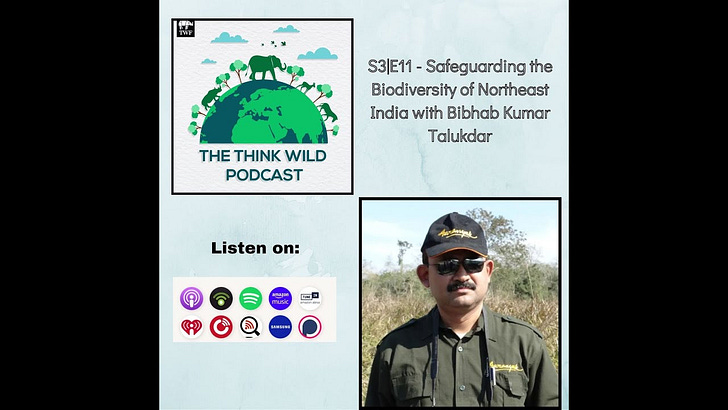
In Episode 11, I am joined by Bibhab Kumar Talukdar, a renowned rhino conservationist. He is the Secretary-General and Chief Executive Officer of Aaranyak, the leading conservation NGO in Northeast India, and a Senior Advisor at the International Rhino Foundation.
We discuss the remarkable recovery of the Greater One-Horned Rhino in Assam. Bibab elaborates on how conservation efforts revived the species from the brink of extinction to a thriving population across the state. He also talks about how to tackle the threat of invasive species in the rhino habitat. We also discuss the state of rhino poaching in th...
S3|E10 - Understanding Forest Regeneration with Neha Singh
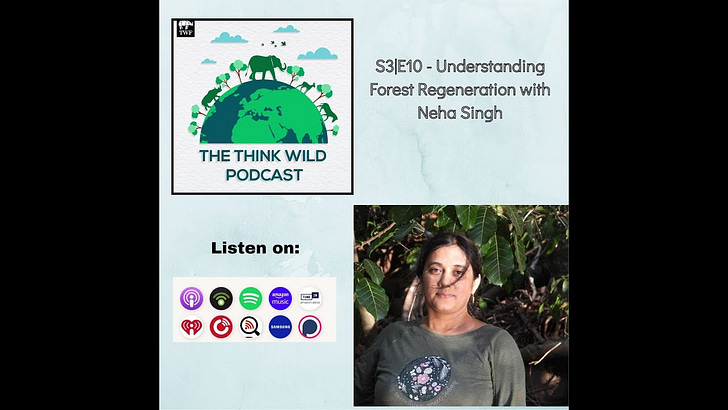
In Episode 10 of Season 3, I am joined by Neha Singh, the founder of Forest Regeneration and Sustainability Trust (FORREST). Neha elaborates upon the Trust’s work on ecosystem restoration in urban and agricultural landscapes. This includes habitat restoration in Sanjay Gandhi National Park in Mumbai, wetland restoration in Jamshedpur and the Farmers for Bird Conservation initiative. She also talks about the roles of wildlife passes across linear infrastructure as ecological corridors and the projects FORREST has undertaken in this regard. Tune into a highly informative episode on ecosystem restoration!
The Think Wildlife Podcast is also available on iT...
S3|E9 - Wildlife Content Creation with Kayden Anthony
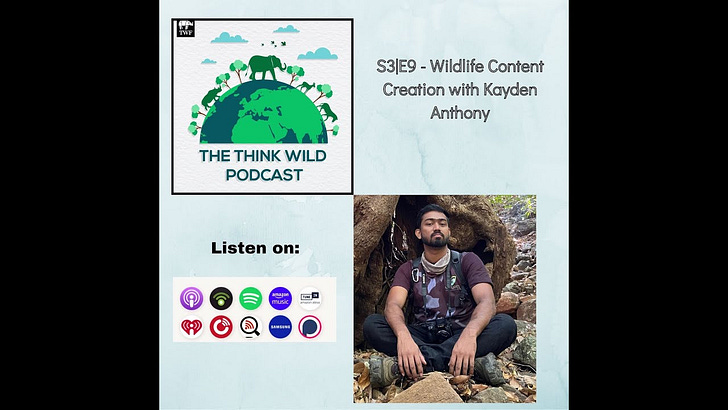
In Episode 9 of this season, I am joined by Kayden Anthony, a wildlife biologist with a knack of digital marketing and content creation. Kayden is the founder of Nature’s Eye, which strives to bring informative and educational content, ranging from biomonitoring, ecological data analysis and remote sensing. In this episode, he talks about the role of digital media in wildlife conservation. Additionally, he talks about wildlife content creation as a career. Tune in to learn about Kayden’s unique conservation career!
Meet the Host
Anish Banerjee: https://x.com/anishwildlife
Think Wildlife Foun...
S3|EP8- Saving the Elusive Red Panda with Moumita Chakraborty
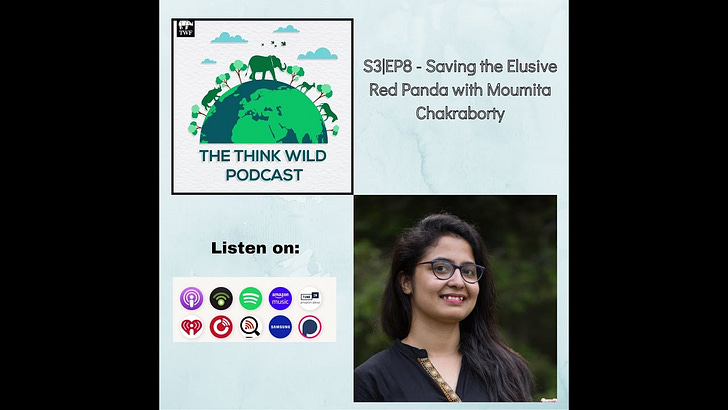
In Episode 8, I am joined by Moumita Chakraborty, a Eastern Himalayas Consultant at the Global Tiger Forum, to discuss red panda conservation. During her PhD at the Wildlife Institute of India, Moumita studied the habitat suitability of Red Panda in the Sikkim to identify the priority areas for the conservation. She also studied the relationship between red panda and people in the habitat.
Listed as Endangered by the IUCN Red List, the Red Panda face a plethora of threats including forest fragmentation, poaching and even free ranging dogs. Tune in to this episode to learn about the...
S3|E7 - On the Brink: Protecting India's last caracals with Shreyas Vijay
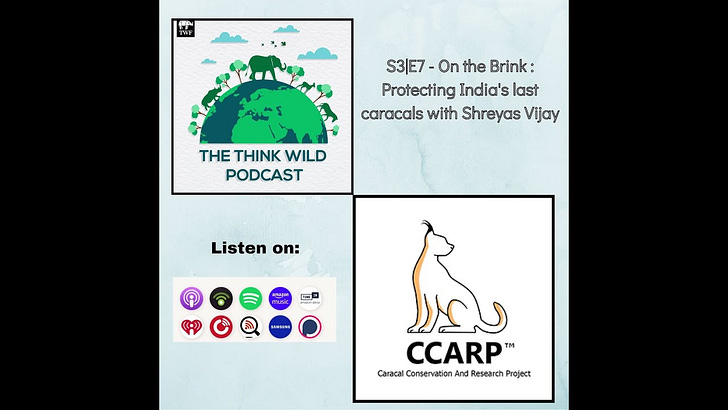
The Asiatic caracal is India’s rarest wild cat. In fact, with the population estimated to be less than 100, the caracal is on the verge of becoming the second extinct species of cat in India after the recently reintroduced cheetah.
In Episode 7, I explore the ecology and conservation of this fascinating cat with Shreyas Vijay, the founder of the Caracal Conservation and Research Project (CCRP). We discuss his research on mapping the population and distribution of caracals in India. Shreyas talks about the threats of human-caracal conflict and the illegal pet trade to caracals across its range in...
S3|E6 - Conserving the Asiatic Lion with Dr. Meena Venkataraman
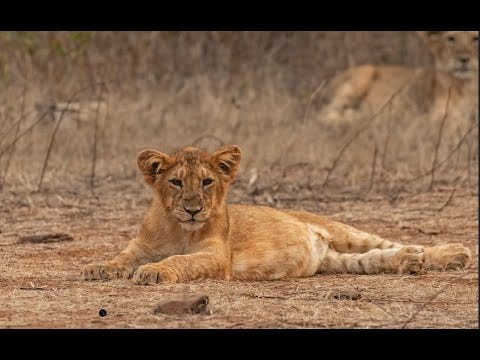
The Asiatic Lion is probably India’s finest conservation miracles. With less than 100 individuals remaining in the wild in the 1960s, the population has skyrocketed with an estimated 600-800 lions roaming the forests of Saurashtra. In 2018, over 50 lions were lost due to an outbreak of the canine distemper disease. Moreover, the range of the Gir lion has spread well beyond the forests of Gir National Park, with prides often found wandering urban landscapes in Saurashtra. This poses a risk of human-lion conflict, which till now has been relatively limited.
In Episode 6 of The Think Wildlife Podcast, I am...
S3|E5 - Charismatic Canids - Conserving India's Wild Dogs with The Dhole Project

In Episode 5 of The Think Wildlife Podcast, I am joined by Mayank Shukla, Anshita Das and Arjun Srivathsa from The Dhole Project. Launched in 2016, The Dhole Project aims to conduct research on Asiatic wild dogs or ‘dholes’ to better understand their ecological requirements and protect their populations in India.
The dhole is one of India’s most charismatic predators, with their range spreading across southern, central India. Listed as Endangered by the IUCN Red List, the dhole faces numerous threats, including rampant habitat fragmentation, free ranging dogs and inbreeding. In this episode we cover the ecology and conser...
S3|EP4- Conserving the Mythical Himalayan Brown Bears of Kargil with Niaz Khan

In August 2022, I had the very good fortune to explore the mountains of Dras, Kargil in search of one of India’s rarest terrestrial mammals - the Himalayan Brown Bear. Listed as Critically Endangered by the IUCN Red List, there are less than 500 individuals remaining in the wild scattered across Western Himalayas and the Karakoram Mountains. Drass in the Kargil District of Ladakh and the neighbouring Deosai National Park in Pakistan remain their largest stronghold (tune in to this episode to learn why this region is so attractive for the bears!)
The future of the Himalayan Brown Bea...
S3|E3- Protecting the European Hedgehog with Dr. Sophie Lund Rassmusen

In Episode 3 of this season, I am joined by Dr. Sophie Rassmusen, a Research Fellow at University of Oxford and Linacre College Research Associate at WildCRU. Popularly referred to as Dr. Hedgehog, Sophie is at the forefront of hedgehog conservation and research.
Unfortunately, scientific research from several European countries indicate that the population of European hedgehogs is in decline all over Europe. In fact, the European Hedgehog was recently downgraded to “Near Threatened” on the IUCN Red List. It is therefore essential to investigate the causes for the decline and enhance the understanding of the challenges hedgehogs face...
S3|E2- Exploring threats to urban owls in India with Debangini Ray

Owls are amongst the most ecologically and culturally important group of birds in India. They act as biocontrol agents due to their predation of rodent and insect pests in agricultural and urban landscapes. Not only does this reduce the dependence of pesticides in agricultural areas but also preventing the spread of zoonotic diseases. Owls, especially barn owls are often revered as a symbol of the Goddess of Wealth, Goddess Laxmi. However, in some parts of India, owls are often treated as a bad omen. Unfortunately, these superstitions make owls susceptible to to the illegal wildlife trade, especially around the...
Season 3, Episode 1: The State of Nature Tech with Gilad Goren

Welcome to Season 3 of The Think Wildlife Podcast. It has been almost two years since I began the Podcast and have had the good fortune of interviewing nearly 100 conservationists around the world. This season consists of another 50 episodes, with topics ranging from nature tech and bioacoustics to conservation filmmaking, the illegal wildlife trade, marine ecology and ecosystem restoration.
In the first episode of Season 3, I am joined by Gilad Goren. Gilad, who is currently at COP16, is the Executive Director of the Nature Tech Collective. This is a non-profit member alliance, accelerator and intelligence unit...
Episode 71: She Changes Climate with Bianca Pitt

The Climate Crisis is imminent. However, despite the urgency of the crisis, there is still a severe lack of diversity and inclusivity in the climate and conservation sector. Women continue to be marginalized from the political sphere because of gender stereotypes, lack of access, and socio-economic-structural barriers. Tackling this is the organization “She Changes Climate”, with the aim of driving awareness of the crucial role of women in accelerating climate action.
The organization is committed to ensuring women, in all their diversity, are included as active participants in climate leadership and policy-making processes. To achieve this, we are a...
Episode 77: Conserving Tasmania’s Biodiversity with James Hattam, CEO at Tasmanian Land Conservancy

Tasmania, the land of the endangered Tasmanian Devil and the extinct Tasmanian tiger, is one of Australia’s most biodiverse regions. Various species of possums, wallabies, seals, penguins, and platypus roam the island state. Unfortunately, the region’s rich ecosystem is under severe threat from habitat clearance and degradation, amplified by the spread of invasive plants and feral mammals.
The Tasmanian Land Conservancy is at the forefront of conservation in Tasmania, with the vision of transforming Tasmania into a global leader in nature conservation. TLC is working extensively at the grassroots level to protect and expand conservation reserv...
Episode 76: Restoring and Protecting the Daintree Rainforest with Branden Barber, CEO of Rainforest Rescue

The Daintree Rainforest, located on the northeastern coast of Queensland, is amongst the most pristine rainforests globally. Over 10 million years older than the Amazon Rainforest, the Daintree is part of the Wet Tropics of Queensland. This forms the largest contiguous rainforest in Australia.
Countless endemic species of avifauna are found in the Daintree, such as the golden bowerbirds, tooth-billed and lovely fairywrens. Moreover, the rainforest also has a relatively stable population of southern cassowary, for which it was listed as an Important Bird Area by BirdLife International. Unfortunately, climate change, habitat fragmentation, rural development, and the spread...
Episode 75: Understanding the Way forward for the Grevy’s Zebra with Dr. David Kimiti and Damaris Lekiluai

The Grevy’s Zebra is the largest extant species of equid in the world. Unfortunately, the species is listed as “Endangered” by the IUCN Red List. With less than 2,000 wild individuals found in pockets of Kenya and Ethiopia, the Grevy’s Zebra is the most threatened of the three zebra species. In the 20th Century, hunting for their skins was the primary threat to the species. However, the species is now heavily threatened by rampant habitat loss and fragmentation, driven primarily by livestock overgrazing and the spread of invasive plants. The development of linear infrastructure is further fragmenting the populati...
Episode 74: Understanding Coral Reefs with Dr Francoise Cavada-Blanco, Co-Chair, IUCN Coral Specalist Group

Coraf Reefs around the world are under severe threat. It is estimated that around 10% of the global coral reefs are dead while about 60% are under severe threat due to anthropogenic pressure.
Climate change remains the primary threat to coral reefs around the world, with increasing sea temperatures catalyzing coral bleaching, which results in the death of reefs. Additionally, increased frequency and intensity of storms, induced by climate change, further damage coral reefs. Beyond climate change, corals are also threatened by rampant coral mining, ocean acidification, and pollution from wastewater and plastic debris.
The destruction of c...
